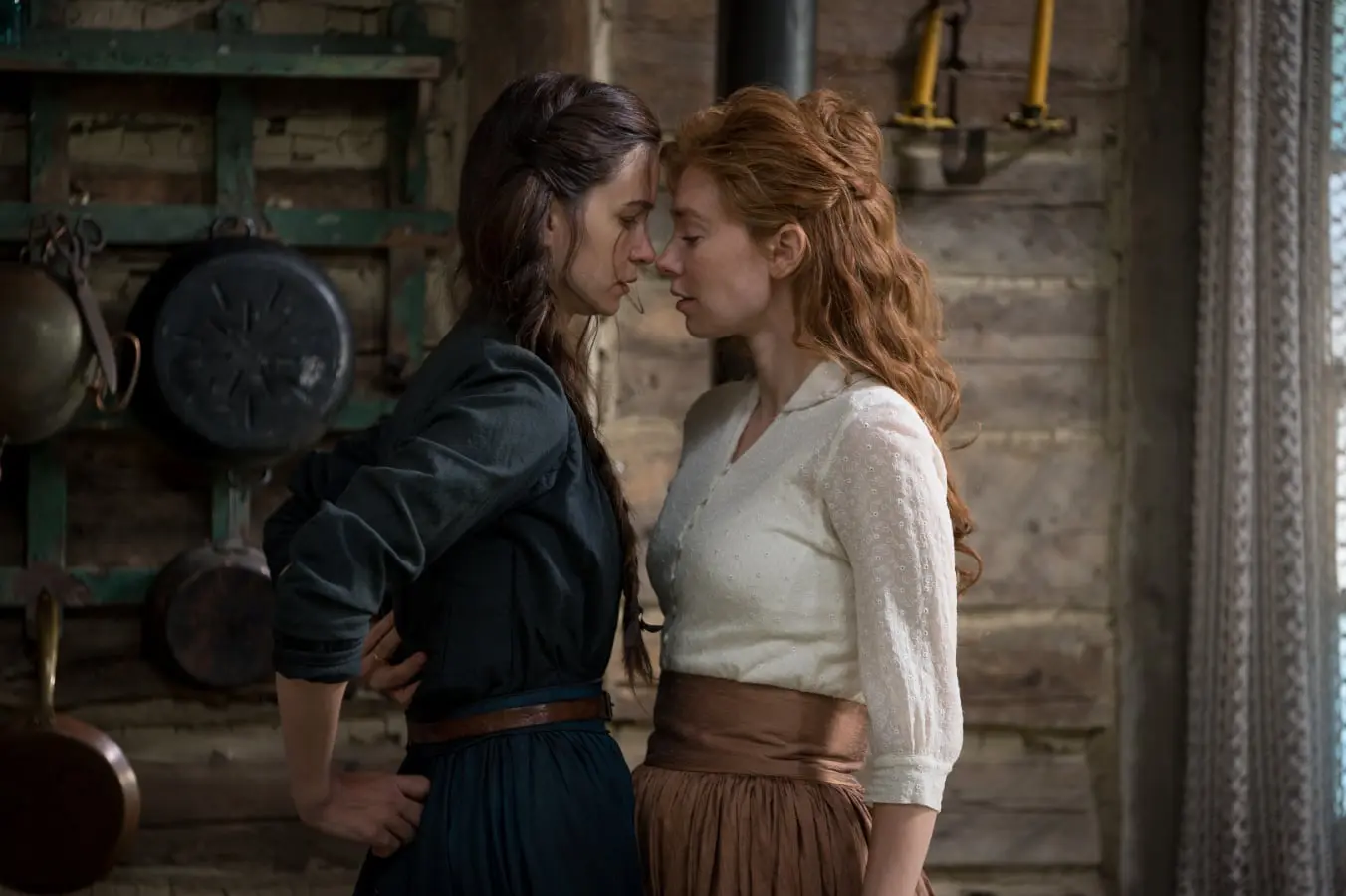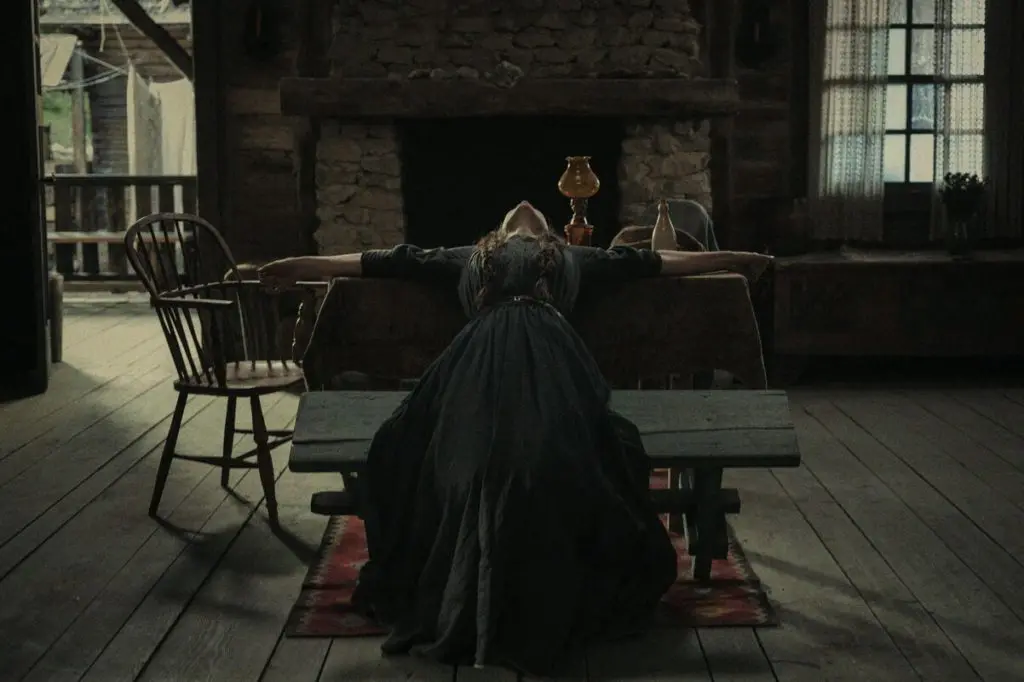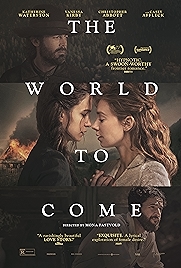Mona Fastvold’s second film, The World to Come, continues her tick-tocking exploration of timebomb relationships, much as did her first one, 2014’s The Sleepwalker. And like The Sleepwalker, this also toys with the viewer, delaying the explosive payoff until its moment has started to recede over the hill.
Has Fastvold been watching Hungarian master miserablist Béla Tarr, I wondered. If so, it might explain the disengaged atmosphere. An early shot, of frontier couple Abigail (Katherine Waterston) and Dyer (Casey Affleck) sitting down to eat a solitary boiled potato, was reminiscent of a scene in Tarr’s final film, 2011’s The Turin Horse, a drama so bleak that it dares you not to titter.
Also like The Sleepwalker, this is a four-hander. Into the lives of Abigail and Dyer come new arrivals Tallie (Vanessa Kirby) and Finney (Christopher Abbott). From first flashing glance there’s obviously something cooking between Abigail and Tallie, a relationship that develops into a full-blown romance, while spouses Dyer and Finney hover at the edges in different stages of disbelief – Dyer deciding that patience might yet win him the day, Finney invoking a wife’s biblical duty. “Submit to your own husband as to the Lord,” he fulminates. Ephesians Chapter 5, Verse 22, if you’re interested.
Béla Tarr might be a fanciful reference point and there are many ways in which this is absolutely not Tarr. It’s not long enough, dark enough, or monochrome enough, and it isn’t making intellectual points but emotional ones. It’s not an arthouse movie but an entertainment with a familiar setting (the Frontier) and unusual subject matter.
But. Big but. Fastvold’s approach is to have all the mood settings flicked to “muted”. Waterston’s flat contemplative voiceover (which runs through the entire film), the soundtrack of earthy woodwind instruments, the intimate, close-up camera and the lights down low.
Portrait of a Lady on Fire Way Out West, perhaps, though The World to Come is more about the simmer than the boil.
“I have become my grief,” says Abigail early on, right after she loses her chid to diphtheria. “Astonishment and joy,” she says to herself later on, three times, after she and Tallie have first converted charged glances into touches. Opposite ends of the emotional register but both in the same near-monotone.
What a cast this is. The film belongs entirely to Waterston. The story is about her, the action focuses on her, the camera is with her and the voiceover is hers. Even so, you have to admire her ability to get any purchase at all with Kirby among the players, and the character of Tallie – lively, sexy, a low voice to charm the dead back to life – is a gift. But Kirby knows whose film this is, as do Affleck and Abbott, the pair of them more a seasoning than an ingredient.
The men are not the heroes of this film but the men are in charge. That, in a sense, is what’s going on here – cat and mouse sexual politics. The women are playing away, but will the men actually catch them at it, as they share their bodies in a leafy glade or trade fiery kisses by the hearth?
So much for Way Out West, it’s all shot Way Out East, in the Carpathia and Transylvania regions of Romania – and every shot says “book now for a getaway-from-it-all holiday” – imposing mountains, clean air, sparkling water, it looks fabulous.
It’s exquisitely made in ever respect, in fact, though the languid tone and intense subject matter aren’t so much contrapuntal as neutralising. As for the dead child who’s meant to be haunting Abigail, it’s a case of same/same – is Tallie a stand-in, a focus for Abigail’s displaced grief? A possibility hinted at and never really explored.
The World to Come – watch it/buy it at Amazon
I am an Amazon affiliate
© Steve Morrissey 2021


